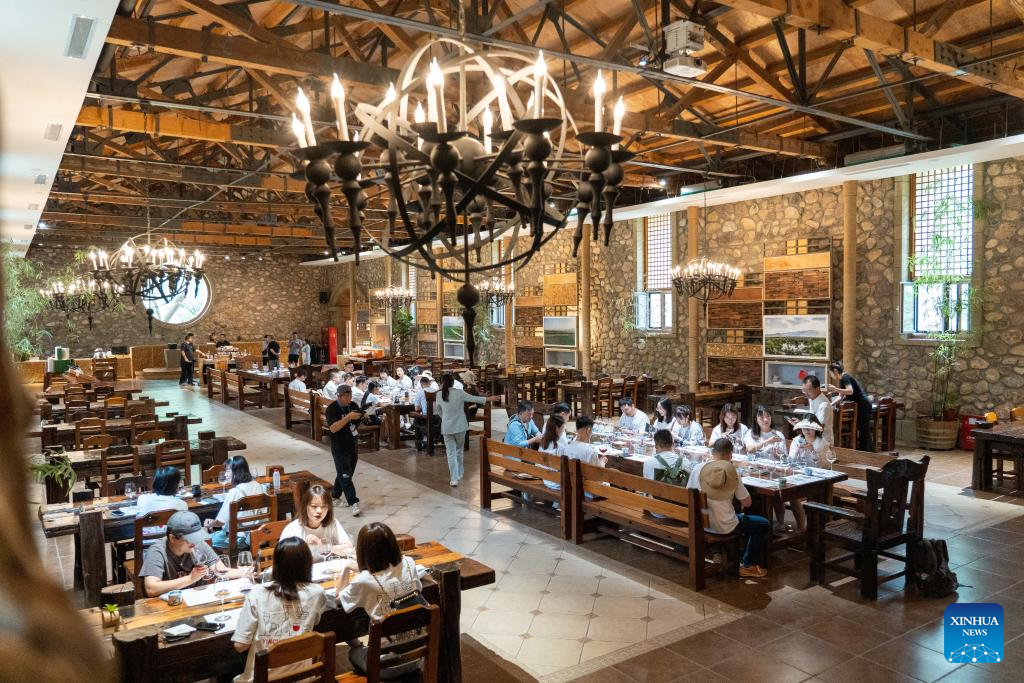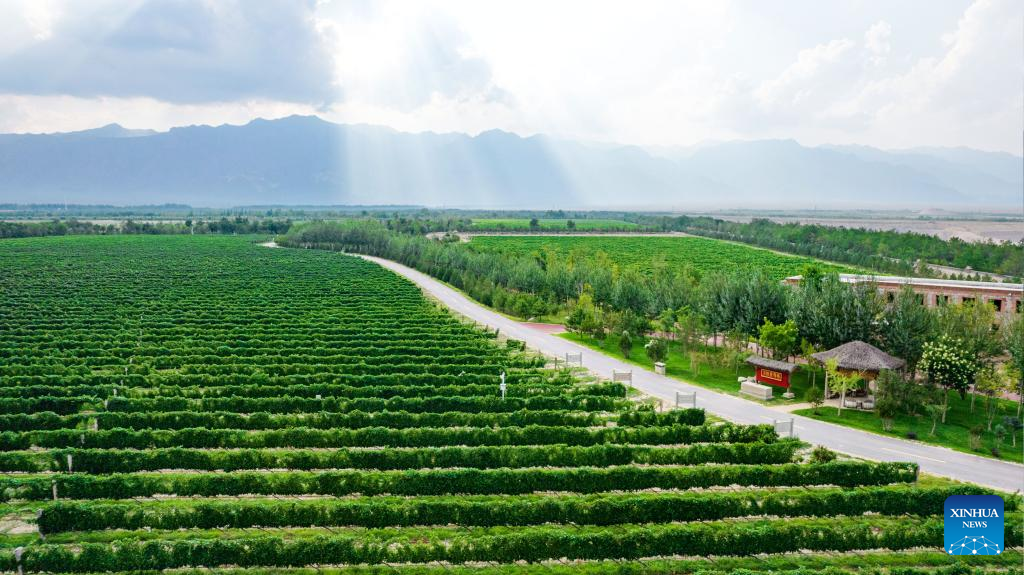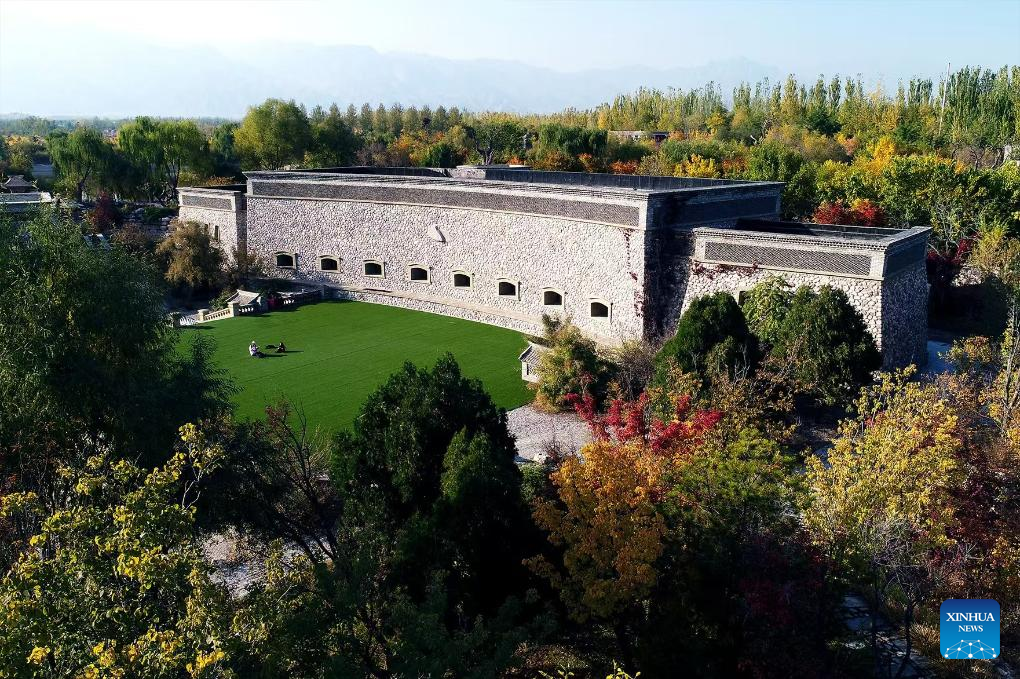
This undated photo shows tourists visiting Yuanshi Vineyard, a winery located in the eastern foothills of Helan Mountain in northwest China's Ningxia Hui Autonomous Region.(Xinhua)
YINCHUAN, Aug. 9 (Xinhua) -- Yuanshi Vineyard, a winery located in the eastern foothills of Helan Mountain in northwest China's Ningxia Hui Autonomous Region, has become a tourism hotspot this summer, attracting visitors worldwide to sip wine and snap photos.
Among them is Luo Yali, a tourist from east China's Zhejiang Province. "I have always loved red wine, but this is the first time I have experienced a winery tour in China. The environment of the winery is particularly beautiful, like a garden," said Luo.
Yuanshi Vineyard is bustling today, but in the late 1990s, it was the site of many sand quarries. One of the former mine pits is preserved in the winery, standing in contrast to the surrounding lush landscape.
Li Haohua, a 53-year-old employee of the winery, located in Haoyuan Village, has witnessed the changes over the years. Once a farmer in the adjacent Gansu Province, he arrived in Ningxia in 1999 looking for job opportunities. In the beginning, he worked as a lorry driver transporting grit from the mine pits to construction sites.
In 2000, the Haoyuan Village was established on the Gobi Desert, and almost all the villagers were migrant workers like Li.
"Back then, I didn't like this place. The wind blew stones around and the sand stung my face. I had to walk backwards to avoid them," he said, adding that his only motivation at that time was to earn enough money to return to his hometown.
In 2011, Ningxia launched a basket of favorable policies to regulate the wine industry and encourage wineries to produce high-quality and branded wine.
The favorable policies have encouraged many entrepreneurs to transition from industries such as coal mining to wine-related businesses, and Yuanshi Vineyard is one of them. As a witness to these transformations, Li grew trees at the vineyard to protect the grapevines from wind and sand erosion.
Nowadays, this formerly arid landscape has been transformed into lush grape vineyards, and Li, who now oversees the afforestation and wine-making work of Yuanshi Vineyard, has been joined by his wife, who is also employed here.
The ecological improvements have brought other benefits to the village. Surrounded by 19 wineries, it has become a tourist destination.
Ai Xiaobao, the village's deputy Party secretary, said that the wine industry has transformed the local ecology, and with a better environment, the village has developed its tourism sector. "Over 60 percent of the villagers in Haoyuan are employed in the wine industry, and the per capita disposable income of the villagers has increased from 8,000 yuan (about 1,120 U.S. dollars) in 2012 to 22,800 yuan last year," Ai added.
Additionally, more than a dozen homestays have been put into use in the village, with 20 more homestays due to be created in the future, according to Ai.
"I plan to decorate my house and transform it into a homestay for tourists next year," said Li.
Haoyuan Village is a microcosm of the development of wine tourism in Ningxia, which boasts a unique terroir for making top-class wine, with its prolonged sunshine and a cool, dry climate aiding the cultivation of grapes.
Over the years, Ningxia has emerged as China's largest wine-producing region. The region now boasts 261 wine enterprises, of which 130 wineries have been built, with the wineries receiving more than 3 million tourist visits every year. Ningxia's wine industry provides about 130,000 jobs for people across the region every year, statistics show. ■

This undated photo shows a grape plantation of Yuanshi Vineyard, a winery located in the eastern foothills of Helan Mountain in northwest China's Ningxia Hui Autonomous Region. (Xinhua)

This undated photo shows a view of Yuanshi Vineyard, a winery located in the eastern foothills of Helan Mountain in northwest China's Ningxia Hui Autonomous Region. (Xinhua)



